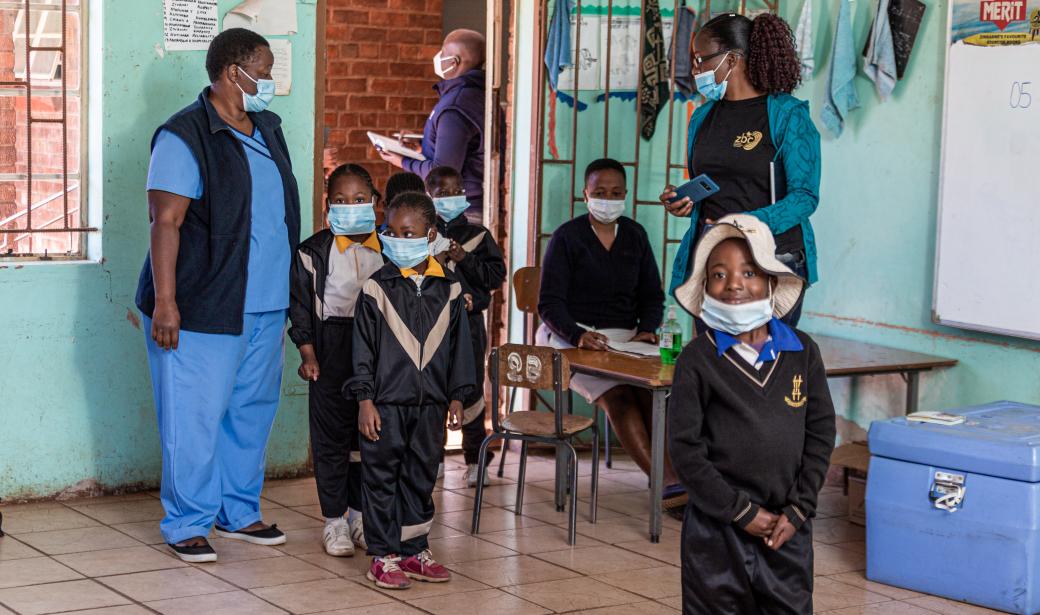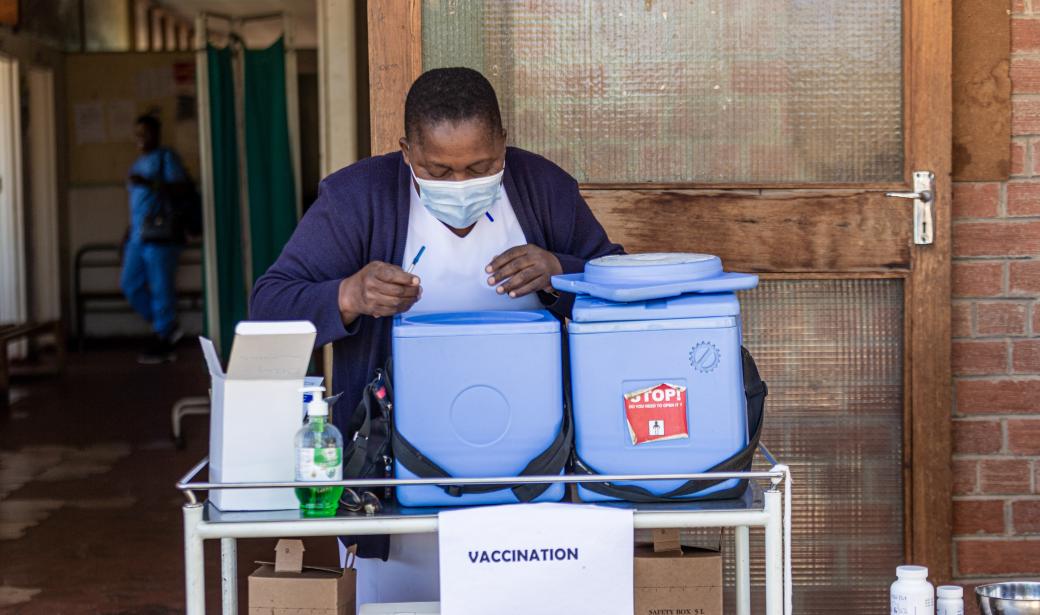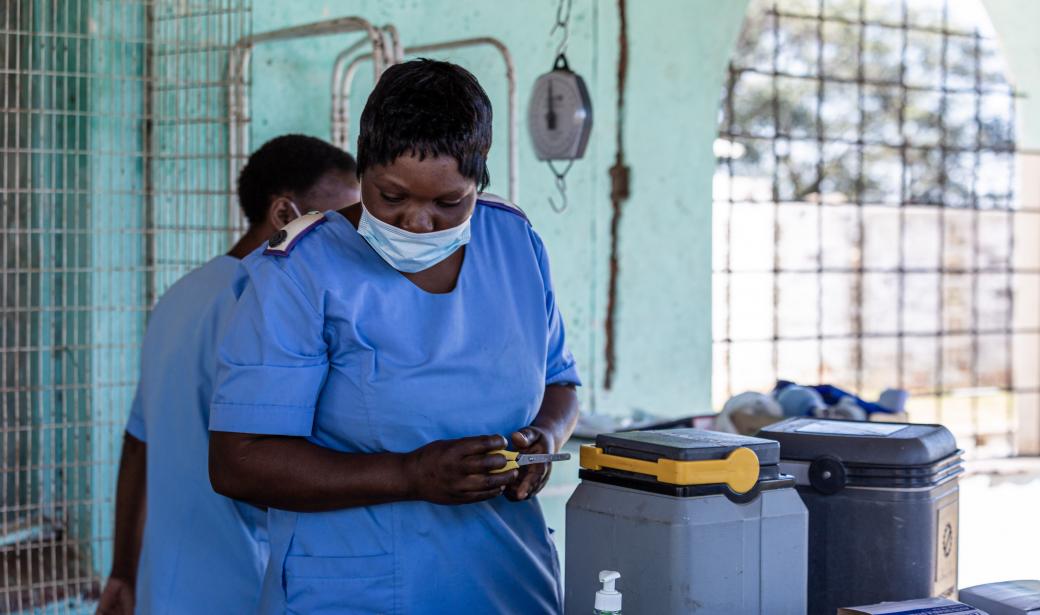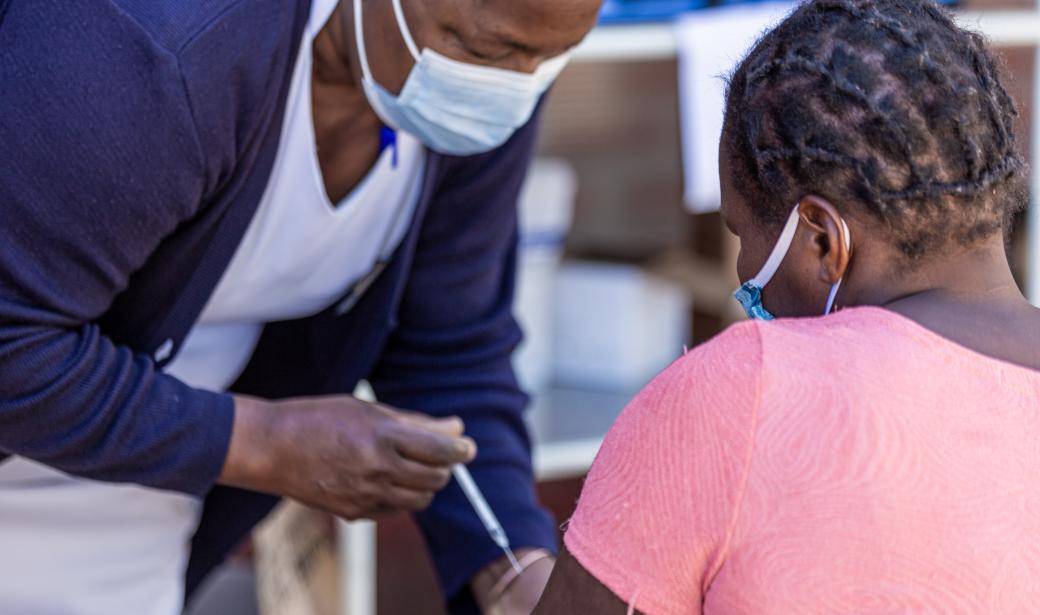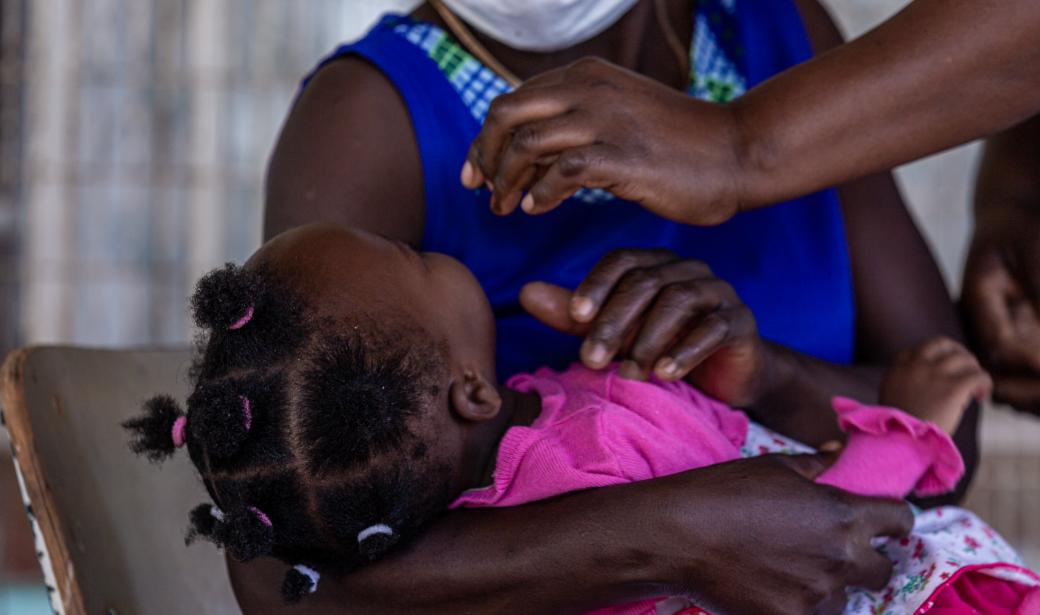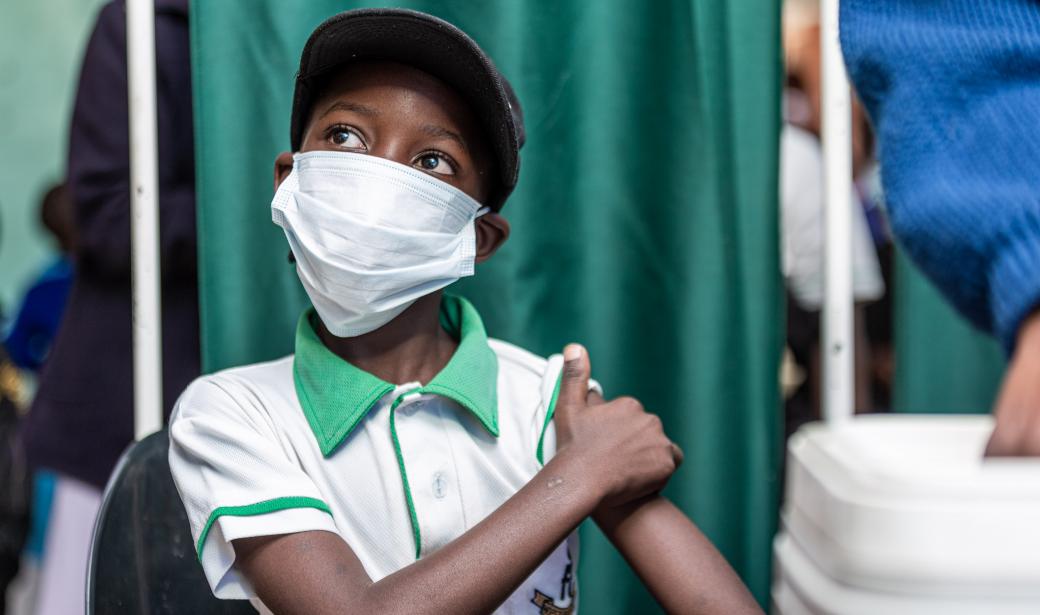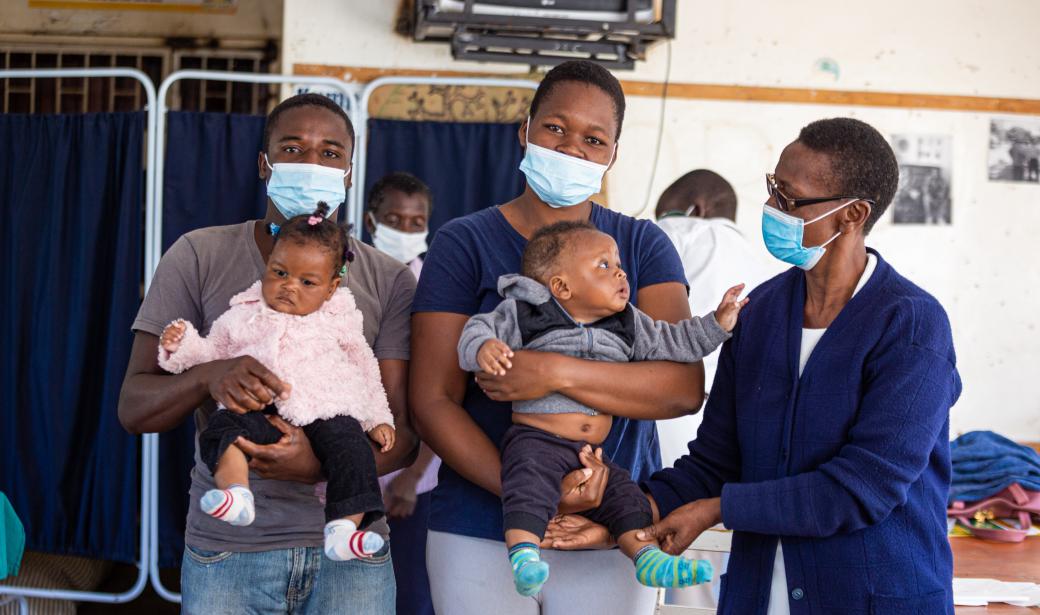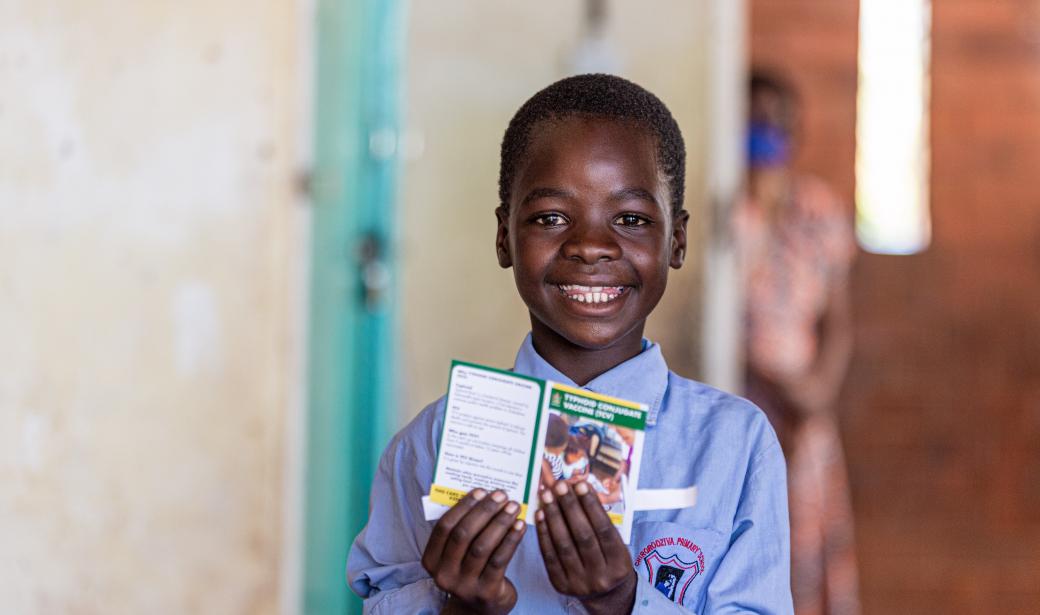The campaign, which has since been expanded in a bid to reach a final target of almost 6 million children, is also an opportunity for children older than 6 months to access the Inactivated Polio Vaccine and a Vitamin A supplement. Girls aged between 10 and 15 years have also received the first and second doses of the Human Papillomavirus Vaccine .
Zimbabwe has battled frequent typhoid and cholera outbreaks for more than a decade due to inconsistent supply of clean water and inadequate sanitation, and hygiene services. The increased rates of drug-resistant typhoid called for preventive measures such as the new typhoid vaccine to help the country better protect its population, particularly its children.
Access to safe water is also a challenge for marginalized communities such as in the Mbire District in Mashonaland Central, where residents rely on shallow wells along riverbanks for their supply. Additionally, health facilities are not easily accessible for many such communities. The introduction of the typhoid vaccine, and the decentralizing of vaccine access, is therefore a welcome development that could save countless lives.
To ensure that as many children as possible were immediately vaccinated, the Zimbabwean government, with support from the World Health Organization (WHO) and other partners, initially rolled out the campaign in schools. Over 4 million children were vaccinated against typhoid in just 10 days. The campaign is still ongoing, with an overall target of just under 6 million children.
“We want our children to grow up healthy, so when we saw the campaign being advertised on TV, we brought our twins straight to the clinic to be vaccinated. I encourage other parents to listen to health professionals and do the same, because they will have a brighter future if their health is put first,” says Hope Zimbiri, a father in Mashonaland West Province, Zimbabwe.
The Ministry successfully incorporated the typhoid vaccine campaign into the routine immunization schedule across the country, with support from WHO, Gavi, UNICEF, PATH, John Snow and other local partners. The campaign, the first of its kind in the African Region, was made possible through Gavi, the Vaccine Alliance and the Health Development Fund, a pool fund that receives contributions from the European Union, United Kingdom, Sweden, Irish Aid and Gavi.
Pour de plus amples informations ou pour demander des interviews, veuillez contacter :
Collins Boakye-Agyemang
Communications and marketing officer
Tel: + 242 06 520 65 65 (WhatsApp)
Email: boakyeagyemangc [at] who.int



